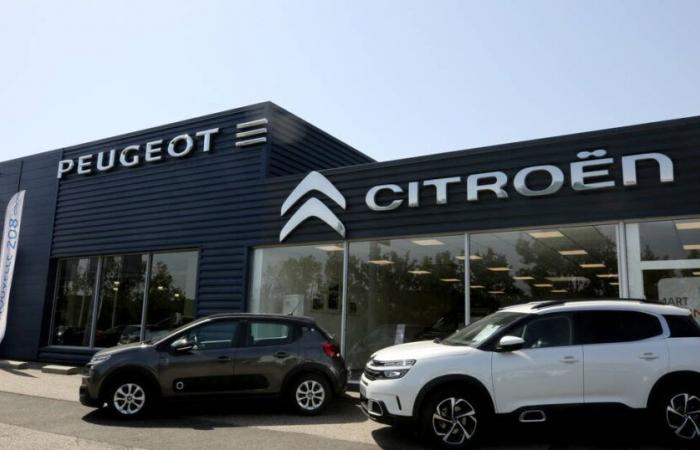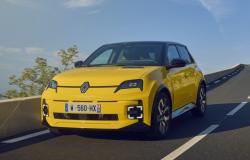
Registrations fell by 3.2% in 2024, the Automotive Platform announced this Wednesday, January 1. Sales of electric vehicles also fell by 2.2%. Enough to fear missing the European objectives on CO2 emissions.
The gloomy sky over the area does not clear. Sales of new cars remained at a very low level in France in 2024, with 1,718,416 private vehicles registered, according to figures published this Wednesday January 1 by the Automobile Platform (PFA), while sales of electric vehicles marked the step.
The political situation, destabilized by the dissolution of the National Assembly in June, significantly contributed to slowing down the market, after a start to the year marked by an increase in sales. Despite a final rebound in December, new car registrations fell by 3.2% in 2024. This is even 22% less compared to 2019, the last year before the Covid-19 pandemic.
Decline of electric
Sales of electric vehicles, which previously experienced a phenomenal rise, have this time declined. They had jumped 47% in 2023 compared to the previous year. In 2024, they fell by 2.2%, despite the implementation of social electric leasing.
The share of electric cars in sales remained stable, with 16.9% of the market, which is “a huge problem […] because to meet the 2025 objectives, we will have to sell many more electric vehicles”explained Marc Mortureux, general director of the Automotive Platform, which represents manufacturers and large equipment suppliers in the sector. According to him, if manufacturers want to adapt to European standards on CO2 emissions, called CAFE, the share of sales of electric vehicles will have to reach 22% in 2025, compared to barely 17% today. “The jump is very important”he warned.
Sales of electric automobiles are unlikely to recover in the short term. “The first buyers have equipped themselves and the others are more skeptical”according to Olivier Varlez, president of the Peugeot dealer group. Buyers could also be slowed down by the reduction in purchase bonuses (from 4,000 to 2,000 euros for households with a reference tax income greater than 26,200 euros per unit), decided by the Barnier government in a context budgetary rigor.
Sales of hybrid vehicles, on the other hand, held up well and represented 42.8% of the total. “The hybrid works very well. For the first time in December, this engine represents 51% of the market”underlined Marc Mortureux.
The depression in the new car market is not unique to France. It has already had initial consequences on factories, which are designed for much larger volumes. Social plans have multiplied in recent months, in France and especially in Germany, first among equipment manufacturers like Bosch and Valeo, but also among major manufacturers like Volkswagen.





